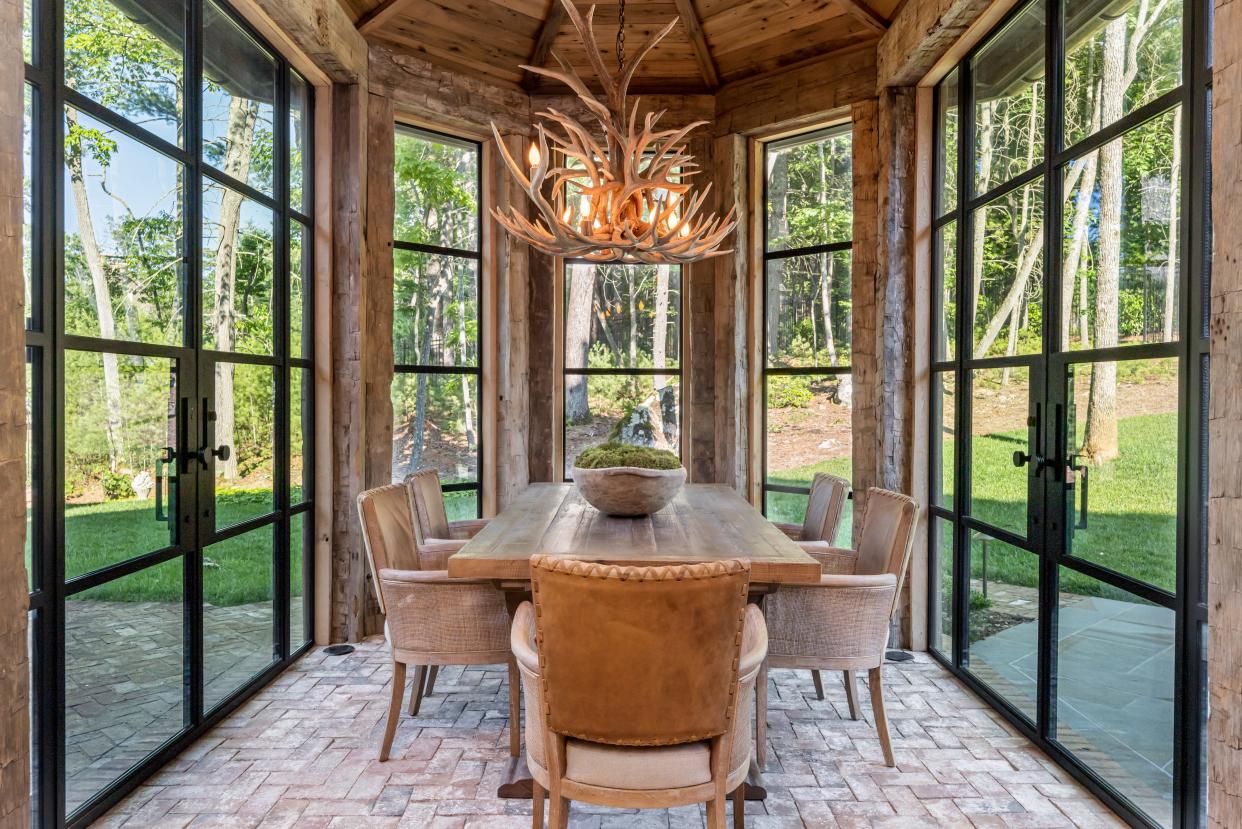Asheville area mansion owners could face higher taxes; changes in local tax assessment

ASHEVILLE - Following changes in one county government department, homeowners in the burgeoning local mansion market could find themselves paying property taxes that are higher ? and fairer, according to advocates of reforming county tax assessment.
Those changes in the way Buncombe County assesses the value of homes for purposes of taxation include greater outreach to owners of lower-priced homes to help them appeal assessments, more monitoring of real estate websites and the addition of two new assessment department staff ? with one of them assigned to luxury homes.
That is according to County Assessor Keith Miller who presented the changes to the Board of Commissioners Feb. 20. The presentation came after years of pressure by reform advocates and coverage by the Citizen Times of multi-million dollar gaps between sale prices of mansions and their tax assessed value. In one of the most glaring examples, owners of Deerhaven Gardens said a private appraiser had valued their mansion and grounds just north of Asheville near Biltmore Park at $40 million, though they put it on the market for $34 million.
Meanwhile, tax assessors had Deerhaven's value at just $3.3 million. Deerhaven owners later lowered their price to $25 million and after stories by the Citizen Times, county staff raised the assessed value to $6.3 million. To calculate tax bills, an assessed value is multiplied by a tax rate. The tax rate is assigned annually by elected officials, such as the commissioners or a town council. In the case of Deerhaven, owners paid $19,070 in 2022 property taxes. In 2023, after the increased assessment, they paid $37,702.
On the other end of the market, owners of lower-end homes were being over-assessed, reformers said. One estimate in 2021 said poorer county homeowners were being over-taxed by $1 million and wealthier homeowners undertaxed by nearly $6 million.
The changes come at a key time as the county is undergoing a once-every-four-year reappraisal process of every property. Those assessed values, pending successful appeals by owners, will be used to calculate taxes on each property until the next reappraisal.
"We have made several changes and improvements. Our hope is that the community will see that reappraisal is about equalization of value by estimating a new property value for all property owners as of Jan. 1, 2025," Miller said in a March 8 email to the Citizen Times.
At the Feb. 20 commissioner meeting, Miller emphasized greater use of data, outreach to lower-income homeowners and a focus on equity that would include a before-and-after analysis by a private contractor to see how poorer and minority homeowners were affected.
He also said staff would be increased to allow for more study of high-end homes.
"We've added two appraiser positions for fiscal year 2024, those were a real estate data review specialist and a luxury review specialist," he said.
Miller has said the recent explosion in local multi-million-dollar home sales has left his staff scrambling to figure out values that are defensible under state law.
A lead reformer, Joe Minicozzi, said he was glad to see the changes, though he said they did not go far enough.
"They are changing their ways, but it’s taken years to get there. Yes, I understand the wheels of bureaucracy take forever, but why so long? Maybe we just have to wait for the next assessment and see how the math works," he said in a March 8 interview.
Minicozzi, an Asheville-based urban planner, said assessors should also look at doing reappraisals more frequently than every four years. And they should publish a list of improvements that were made to homes and not reported to the county so commissioners could decide whether back taxes should be collected.
In one sample of 2% of the housing stock, untracked improvements were found that would have generated $4.4 million in taxes, "which is 111 school teachers," he said.
During commissioners meeting with Miller, Chair Brownie Newman asked about the appeal process, saying "a concern in the past" has been that wealthier property owners have been more successful at getting their assessments lowered.
"Folks who have higher-end housing and commercial properties are more likely to appeal their valuation...and are more likely to be successful in their appeal, even though there is not data to indicate they are being over-assessed," Newman said.
Commissioner Al Whitesides, a former banker, said that was because those property owners "could afford top-notch accountants and tax lawyers to fight for them."
Whitesides said it was important that lower-wealth property owners understood their right to appeal and had access to the process.
Miller said reaching out to those homeowners had been a top priority and that staff's efforts included spending time at events such as the Juneteenth celebration downtown and going to the Leicester Community Center to talk to property owners.
He said if he did not see an increase in appeals by owners of lower-value properties, "I will be very disappointed."
“Do our higher-end properties have more success? Maybe. But I think more success comes from better information. What we want everyone to know is what to do to be successful.”
More: Biltmore Forest Ramble home sells for $7 million; Buncombe County values it at half-price
Golfing in your backyard: Most expensive home in Henderson Co. goes on sale. See the price
Joel Burgess has lived in WNC for more than 20 years, covering politics, government and other news. He's written award-winning stories on topics ranging from gerrymandering to police use of force. Got a tip? Contact Burgess at [email protected], 828-713-1095 or on Twitter @AVLreporter. Please help support this type of journalism with a subscription to the Citizen Times.
This article originally appeared on Asheville Citizen Times: Asheville area mansion owners could face higher taxes; new assessments
